Two Weeks on the Mekong

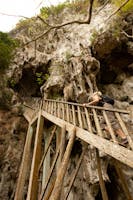
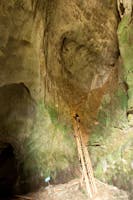
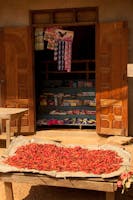
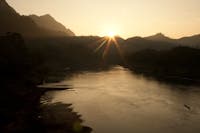
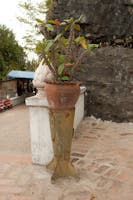
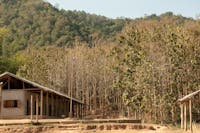
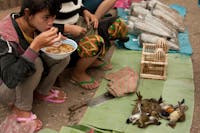
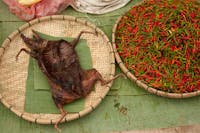
This blog was quiet for the month of December– I was in Laos, a small country in Southeast Asia sandwiched between China, Burma, Vietnam, Thailand and Cambodia, where I had little or no internet access. Laos has the distinction of being the most bombed country ever in the history of the planet–US forces would drop their unused bombs there en route back to their base during the Vietnam war–likely figuring that it was an uninhabited patch of jungle. As a traveler I was poignantly aware of this fact. All over the city of Luang Prabang there are flowers planted in old missile casings. And it’s a tough place to go hiking without a guide unless you want to visit one of the many limestone caves were thousands of people lived during the Vietnam war. (The cave in these pictures housed 23,000 people for five years!) In many locations, there are unexploded bombs that continue to rise to the surface with time, that claim the limbs of lives of both adults and children, whether they are working or playing. “It’s not safe,” I heard over and over as I asked about scrambling up dramatic peaks in the central part of the country where I was traveling. “You must go with a guide.”
Ultimately I stuck to cycling and exploring Laos by river. The people were warm and welcoming, the food was full of mouth burning hot chopped chilis and lemongrass and sticky rice. But Laos reminded me of the big challenges of trying to make the world an environmentally better place from the small to the large. Go to the market and everything is in plastic bags–food, dry goods, everything. Walk down to the river, and women are washing their laundry with commercial, chemical detergent in the river while their kids are bathing next to them, and a pipe directly next to them is bringing drinking water up to the village. Fisherman are right there too, catching dinner–precleaned with shampoo and detergent. Anything that moves is considered food and sold in the market–from rats to songbirds to bugs. Slash and burn agriculture is still considered the most effective farming technique. Clearing jungle to grow teak is the closet a Laotian can come to having a 401K.
On the flip side, meeting many Laotians as well as travelers from all over the world reminded me that it’s possible to respect each other and work together despite religious, language or cultural differences. When I travel I am always reminded not to make assumptions… about anything. So that’s front of mind for me as I enter 2010–keep the feeling of freedom of the road alive, embrace differences and find that common ground, that place where we can work together… and never make assumptions.
-Berne Broudy